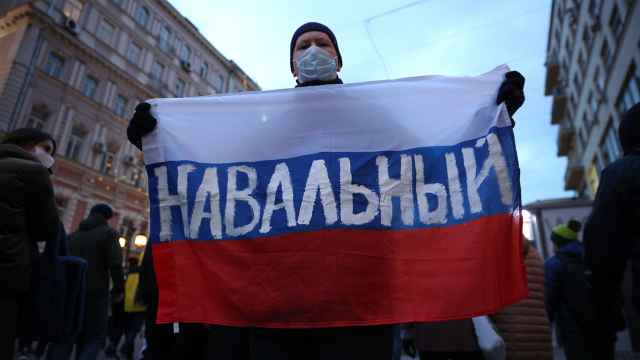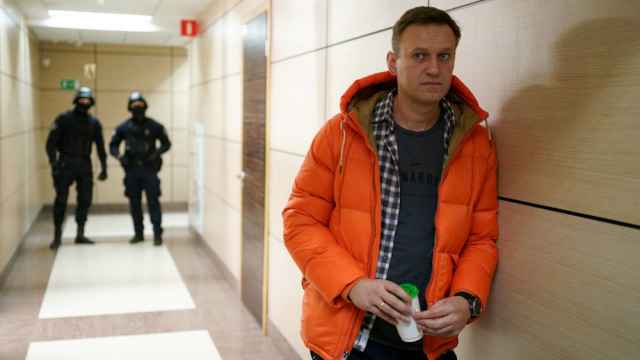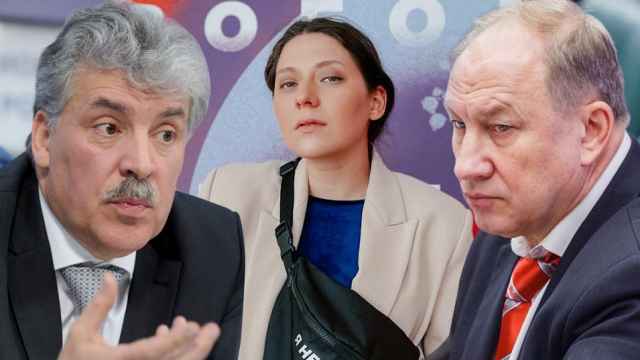German medics have found traces of the toxic substance used to poison prominent Kremlin critic Alexei Navalny in his blood, skin, urine and a water bottle he drank from, the German news magazine Der Spiegel reported Friday.
The German government said Wednesday it had unequivocal proof that Navalny was poisoned with a military-grade nerve agent from the Novichok family. Russian doctors and government officials said their tests did not reveal any poison in the opposition leader’s system when he was treated in Siberia before being evacuated to Berlin.
Traces of Novichok were not only found in Navalny’s blood, urine and skin samples, Der Spiegel reported, but also on a water bottle that Navalny’s family turned over to the doctors in Berlin.
“Navalny had probably drunk from the bottle after he had already been poisoned, and so he left the traces of the poison there,” Der Spiegel reported.
The magazine added that a senior doctor at the German military’s institute of pharmacology and toxicology told Chancellor Angela Merkel and six high-level cabinet members that the nerve agent “without a doubt” belongs to the Novichok group of nerve agents.
Navalny fell ill on a flight from Siberia to Moscow on Aug. 20. He remains in a medically induced coma and on a ventilator in Berlin. Doctors there say that while his symptoms are fading long-term effects are hard to predict.
The Kremlin has expressed readiness to cooperate in investigating the poisoning but urged Germany to share its findings, saying it could not launch a probe without seeing proof that a nerve agent caused his illness. Russia’s foreign minister said Friday that Berlin had promised to respond to Moscow’s request in the near future.
Russian doctors have previously diagnosed the 44-year-old anti-corruption campaigner with a metabolic disease. On Friday, Siberian toxicologists pinned Navalny’s coma on dieting, excess drinking, stress or fatigue.
Meanwhile, Russia’s interior minister said Friday he believes that Navalny’s poisoning does not bear the hallmarks of a criminal case. A Russian court rejected earlier in the day a complaint filed by Navalny’s associates that authorities had failed to open a criminal investigation into his attempted murder. The court said that investigators had passed their complaint to a regional branch.
“Where would [the criminality] be? We don’t yet see grounds” for qualifying Navalny’s poisoning as a criminal act, Interior Minister Vladimir Kolokoltsev told Interfax.
A Message from The Moscow Times:
Dear readers,
We are facing unprecedented challenges. Russia's Prosecutor General's Office has designated The Moscow Times as an "undesirable" organization, criminalizing our work and putting our staff at risk of prosecution. This follows our earlier unjust labeling as a "foreign agent."
These actions are direct attempts to silence independent journalism in Russia. The authorities claim our work "discredits the decisions of the Russian leadership." We see things differently: we strive to provide accurate, unbiased reporting on Russia.
We, the journalists of The Moscow Times, refuse to be silenced. But to continue our work, we need your help.
Your support, no matter how small, makes a world of difference. If you can, please support us monthly starting from just $2. It's quick to set up, and every contribution makes a significant impact.
By supporting The Moscow Times, you're defending open, independent journalism in the face of repression. Thank you for standing with us.
Remind me later.






